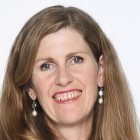Panel Presentation Session SKI06
Education and Training for Refugees and Displaced Persons: How to Create Policies and Initiatives that Work
This event is about meeting the educational needs of a diverse group of people in potentially challenging environments. What might a scaled-up, relevant programme consist of for refugees and displaced populations abroad? How can it be realised?
Join this topical session to hear about the latest research on urgent needs in low-resource environments, and discover how countries across the globe develop policies, strategies and good practices to support mobility and meet these needs.

David Hollow
Team leader, Jigsaw Consult, UK
David works for Jigsaw Consult, a social enterprise based in London that works with a wide range of international development organisations. He has participated in eLearning Africa since 2007. David works with a variety of donors, governments, private sector and civil society organisations on issues of education, technology, partnership and impact assessment. He holds a PhD in evaluating the impact of ICT on education in Africa and also lectures on the MSc course in ICT4D at Royal Holloway, University of London. He is Chair of Trustees for Refugee Support Network, a London-based charity providing educational support to young people affected by displacement and crisis.
Links

Sally Ward
Regional Manager Higher Education Middle East and North Africa, British Council, United Arab Emirates
Sally Ward works for the British Council as the Regional Manager for Higher Education in the Middle East and North Africa region (MENA). She has worked across the broader MENA region for 10 years, starting her work with the British Council in Saudi Arabia as manager of the Gulf Region. She now manages the Higher Education Programme across the Middle East and North Africa, with a focus on the developing education systems in the North Africa region.
Sally has worked in Education for more than 30 years. Her background is in schools and universities from a strategic management and development perspective. She has worked as a teacher in the UK and South Africa, as well as being involved in teacher-education, adult education, health and development education and latterly, in higher education.
Sally is actively involved in British Council work involving refugees and migrants in MENA, particularly around higher education for Syrians in the host countries of Jordan, Lebanon, Egypt and Iraq. This involves providing technical expertise for education projects and programmes. It also includes advocacy, policy development and communications around the barriers to and key success factors for online and face-to-face programmes being developed for displaced and refugee learners.
Sally was responsible for writing the project proposal for the LASER Project and has also helped to develop the higher education component of the HOPES Project which currently runs across five host countries. She is currently leading on the management of research into higher education for refugees across the MENA region, in partnership with UNHCR and an initiative to further research structural obstacles and attitudes to the recognition and accreditation of online and distance education in the MENA region.
In addition to her work in higher education for refugees, she manages and coordinates British Council’s higher education programmes in 13 countries across the MENA region. Sally has a degree in education, a Master’s Degree in Management and has completed the University of Geneva’s Higher Education in Emergencies summer school course. She has led and managed research, has conceptualised, written and trained various courses, and has written and edited textbooks, books and other learning materials.
Links
http://www.britishcouncil.ae/en

Céline Peroni
Project Manager, European Commission, Belgium
Celine Peroni is Policy Officer in the Erasmus+ Higher Education unit at the Directorate-General for Education and Culture of the European Commission. She studied political sciences at the Institut d'Etudes Politiques in Grenoble, France and finalised her studies in Italy at the Facoltà di Scienze Politiche Cesare Alfieri, Florence. Celine joined the European Commission in 2013 and moved on to the Education and Culture DG in 2015, where she is currently responsible for the Erasmus+ Online Linguistic Support (OLS).
Moderator

David Banes
Director; Access Technology Evangelist, Consultant working with The Qatar Foundation International for “Build Back Better”, UK
Director of David Banes Access and Inclusion Services and formerly CEO, at the Qatar Assistive Technology and Accessibility Center, David has developed services ensuring the digital inclusion of disabled people. He works across Middle East and Europe to address how access is maintained during periods of technical and social change, seeking to build capacity, linking awareness, policy, technology development and the need for training.
With a background in special needs education and supporting digital inclusion in Europe, he supports emerging access ecosystems promoting cooperation between states, supports development of accesisble technology solutions and content.
Recent work includes a framework for contextualisation of access technology, transference of knowledge across communities and a policy framework to address the rights of people with a disability. His current activity includes educational support for refugees and the disruptive innovation upon the access industry.